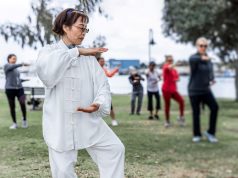Two studies show no significant reduction in patient acceptance, adherence to virtual CR; remote CR as effective as outpatient CR
TUESDAY, Nov. 10, 2020 (HealthDay News) — Remote or virtual cardiac rehabilitation (CR) programs are effective alternatives to on-site programs, according to two studies presented at the American Heart Association Scientific Sessions 2020, held virtually from Nov. 13 to 17.
Joseph Alan Ricci, M.D., from Central East Cardiovascular Rehabilitation in Toronto, and colleagues examined the impact of the Canadian March 17, 2020, Emergency Management and Civil Protection Act to limit spread of COVID-19, which closed nonessential services and limited group activity, on CR access and completion. The researchers observed an increase in inpatient referrals, while community referrals were reduced with office closure. Attendance was stable; the attendance rate versus the scheduled rate was 85 percent of the comparable period (March 16 to April 24, 2019). Patient acceptance was greater than 90 percent, with only 9 percent declining virtual CR programming.
Atsuko Nakayama, M.D., Ph.D., from the University of Tokyo, and colleagues conducted a prospective study involving patients hospitalized for heart failure with left ventricular ejection fraction <50 percent from January 2019 to April 2020. Patients were offered participation in a remote CR program, which included telephone support by a nurse specialized in heart failure and cardiologists. The researchers found that during the COVID-19 pandemic, the participation rate of the remote CR program was increased. Compared with the non-CR group, emergency readmission within 30 days after discharge was lower in the remote CR group, similar to the outpatient CR group.
“In the future, remote cardiac rehabilitation may help resolve disadvantages due to regional disparities and access to medical specialists, which would especially benefit elderly patients and people living far away from a hospital,” Nakayama said in a statement.
Several authors from the Nakayama study disclosed financial ties to the pharmaceutical industry.
Copyright © 2020 HealthDay. All rights reserved.








